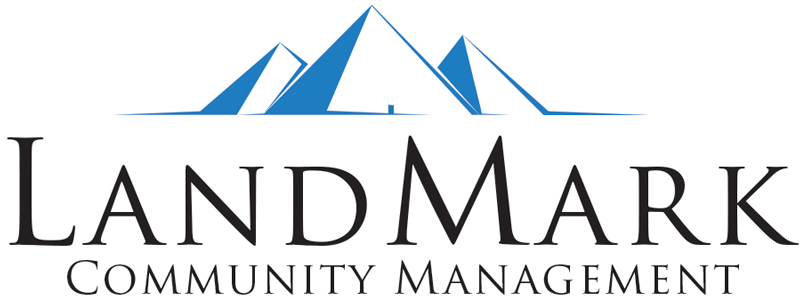Why is the HOA treasurer such an important role? Some communities may think that they can eliminate the role if they have a management company. However, the HOA treasurer is more important than you might think. Whether you have a management company or not, here is why having an HOA treasurer is important.
What Is an HOA Treasurer?
Before we get into the why, let’s first understand the HOA treasurer’s role. What is the HOA treasurer? Simply put, the treasurer acts as the association’s financial manager. They’re responsible for the association’s funds and managing financial records. The HOA treasurer is essentially in charge of collections, billing, disbursements, and recording.
Why Is the HOA Treasurer Important?
The community’s finances are the lifeblood of the association. Without proper financial management, the HOA can quickly fall into chaos. The association won’t be able to properly collect dues, create a feasible budget, or keep track of their spending. In the worst-case scenario, the association may go bankrupt, and the association members face hefty assessments.
This is why an HOA treasurer is so important. When they fulfill their HOA board treasurer duties well, the HOA can stay financially healthy. The board will know how much to spend, where to spend it, and how much more they need to earn. This can help them determine how much to assess, when to use reserves, and when to levy special assessments.
Even if a community hires an HOA management company to handle most financial management, an HOA treasurer is still necessary. This is because it’s dangerous to let the management company have full rein over the HOA’s finances. The treasurer must still be there to provide the HOA treasurer’s report and keep the management company accountable.
Moreover, management companies are often only allowed to conduct menial tasks for the HOA. The HOA board still has full decision-making power over the community. Hence, the treasurer still needs to make key financial decisions even if they don’t personally oversee collections, disbursements, and financial management.
HOA Treasurer Job Description
HOA treasurers have a lot on their plate. They’re in charge of everything related to the association’s finances. What exactly are the HOA treasurer’s duties? Here are the primary HOA treasurer responsibilities you need to know about.
1. Record Keeping
The HOA secretary may be responsible for maintaining the majority of the community’s records. However, the HOA treasurer also plays a part in the documentation. That’s because they’re in charge of all the association’s financial records.
This includes the community’s accounting records, budgets, and financial reports. In addition, they make sure that these records are stored securely, especially if the HOA has an HOA manager.
2. Budgeting
One of the most important HOA treasurer duties involves creating the budget. The budget determines how the HOA will spend its money for the fiscal year. It also helps the HOA see if they can cover the year’s expenses and where to cut back on.
Hence, it determines how much to allocate toward maintenance, capital improvements, reserve funds, and beautification. It’s also the basis of the community’s monthly and special assessments.
The HOA treasurer often works with the HOA management company and a CPA to draft the budget. However, larger HOAs may also create a dedicated budget committee. Regardless, the treasurer often spearheads budgeting to ensure the HOA is financially healthy.
3. Internal Control
The HOA treasurer must carefully review how the HOA manages its funds. They must check for irregularities such as misrecorded expenses or suspicious purchases. The HOA treasurer must review the financial records to ensure the HOA spends the money responsibly.
4. Auditing

The HOA treasurer should ensure the association conducts its periodic financial audits. This is sometimes required by state law. For example, California requires at least a review of an HOA’s financial records if its gross income is over $75,000.
In addition, some governing documents require HOAs to conduct an audit every few years. However, even if the governing documents and state law are silent, it’s still a good idea to conduct an audit to promote financial transparency.
5. Dues and Assessments Management
The HOA treasurer must collect monthly dues and follow up on late payments. They must also manage delinquent accounts and coordinate with the board so they know how to collect. It’s part of keeping the association financially healthy, as assessments are the main source of funds for HOAs. Without them, the HOA could face a shortage and be unable to fulfill its obligations.
6. Reserves
Homeowners associations must maintain an ample reserve fund to cover major repairs and replacements. This ensures the community stays financially afloat even when big maintenance issues crop up.
The treasurer is responsible for ensuring enough reserve funds for these major repairs. They must conduct reserve studies, monitor the reserve funds, and account for the reserves in the annual budget.
7. Insurance
Every HOA needs proper insurance coverage to reduce the risk of liability. The treasurer is responsible for overseeing these insurance policies and making sure the HOA has enough coverage. They should also ensure that the HOA isn’t overspending on insurance and only purchases what the community needs.
8. Taxes
HOAs need to pay taxes just like other non-profit organizations. As such, the HOA treasurer must know which IRS forms to use, when to file them, and how much to pay in taxes. If the treasurer needs help, they often seek assistance from the HOA manager, a CPA, or an auditor.
9. Investing
Homeowners associations sometimes pursue investments to increase their budget and reduce the community’s financial burden. The HOA treasurer oversees these investments, ensuring they are fair and in line with the HOA’s values. Often, they will follow the association’s investment policies and remind the board of these to keep them accountable.
10. Financial Reports

The HOA is a corporation and must prepare financial reports to showcase its financial health. These reports inform the board of how the association is doing financially. Through them, the board can make decisions regarding assessment increases, levying special assessments, using reserve funds, taking out loans, or reducing expenditures.
The homeowners also receive a copy of these financial reports to understand why the board will make certain decisions. They have a right to know about the HOA’s financial situation to know what to expect.
The HOA treasurer is in charge of preparing these reports — or at least, they work with the bookkeeper or CPA to ensure they’re prepared accurately and on time. Even if the treasurer has no accounting background, they must have a basic understanding of these financial reports.
Good HOA Treasurer Qualities
The treasurer plays a key role in community management. Hence, the board and community members must be able to select someone competent and qualified for the job. Here are the important qualities you must look for in an HOA treasurer.
- Familiarity With the Governing Documents. The governing documents provide financial guidelines and procedures the treasurer must follow. Hence, the person appointed must know the community’s rules and requirements regarding collections, recording, and auditing.
- Detail-Oriented. The HOA treasurer must be detail-oriented to keep the community in good standing. One small mistake could cost the association thousands of dollars.
- Organized Record-Keeping. Since the treasurer is responsible for keeping financial records, they must be organized and methodical. They must be able to create a system to keep track of all the association’s finances properly.
- Transparent. The treasurer handles the community’s funds and must be trustworthy and transparent. They should fully disclose their actions and provide other members access to the financial records.
- Legal Knowledge. Treasurers must be updated with state, federal, and local laws regarding HOAs. They must comply with all legal requirements so the HOA avoids liability.
- Able to Work With Others. Treasurers must coordinate with the management company, CPA, attorney, auditor, bookkeeper, and other board members to perform their roles. Hence, they need to be communicative, cooperative, and team players.
Effective Financial Management
Having a reliable HOA treasurer is important to effective financial management. With a good treasurer, the community will run much more efficiently. They’ll be able to stay on top of collections, spend within the budget, and prepare for the future.
Do you need professional financial management? Landmark Community Management can work with your HOA treasurer and provide you with excellent financial management services. Call us today at 512-569-5527 or contact us online to learn more!


